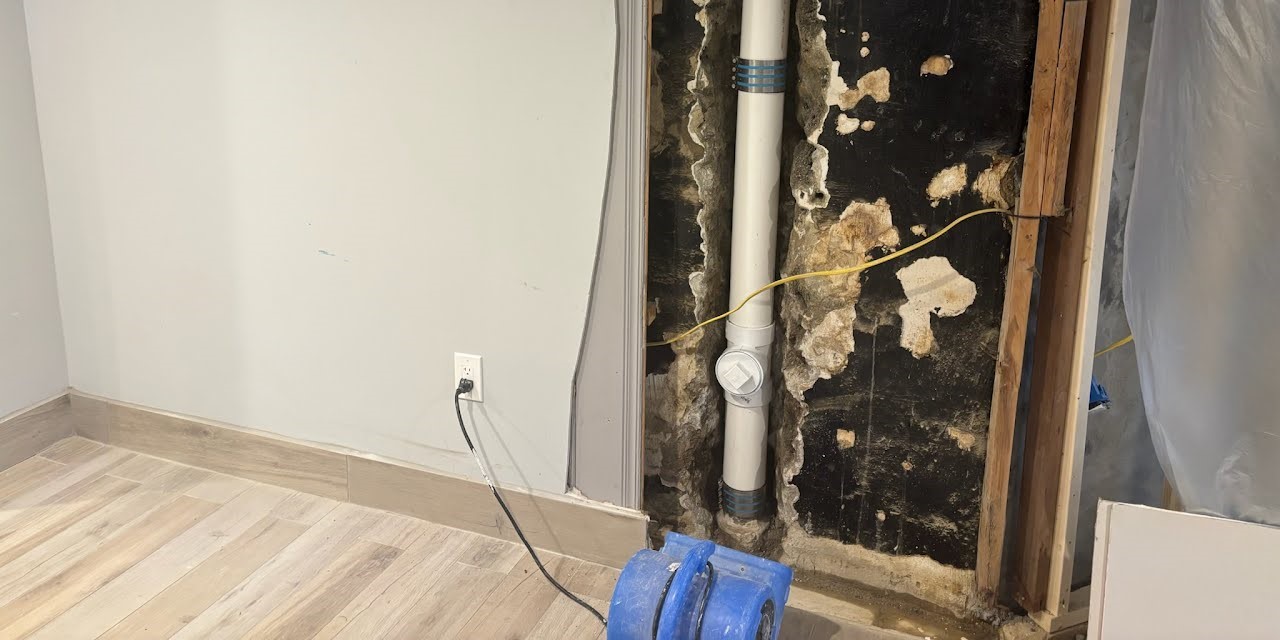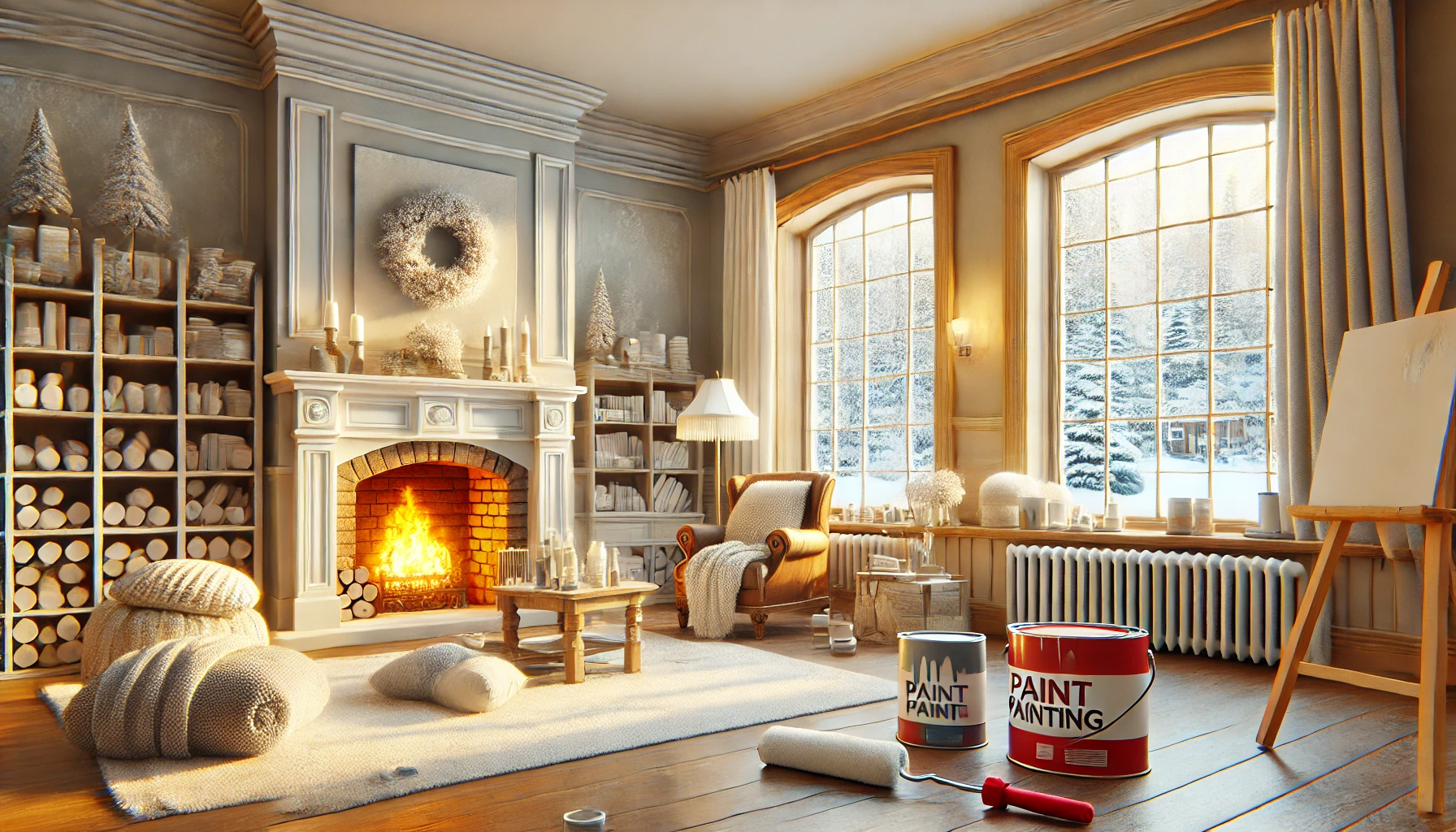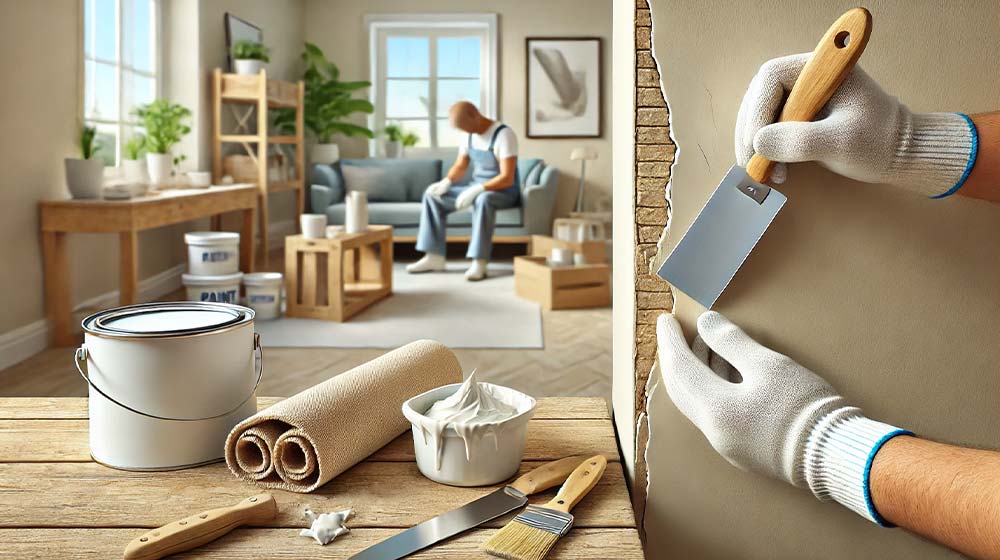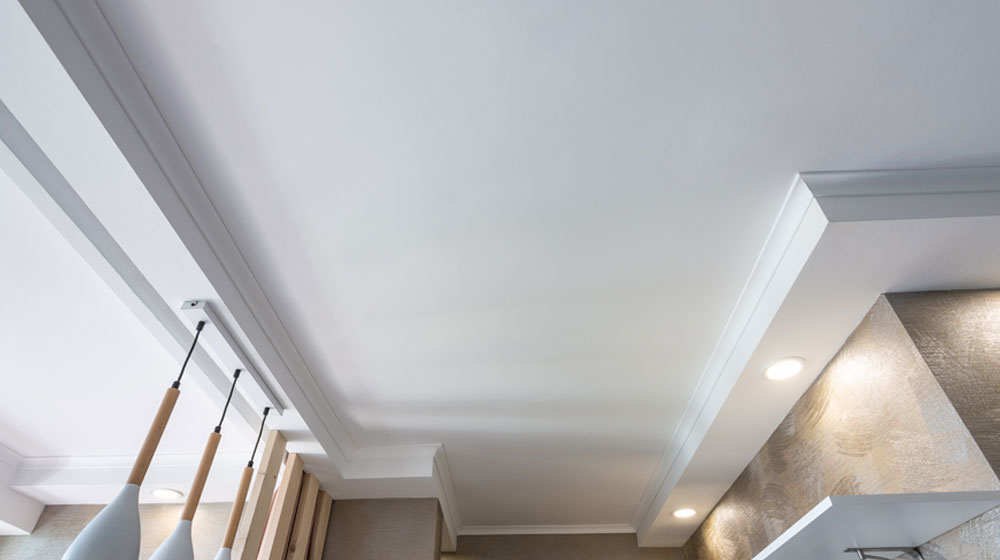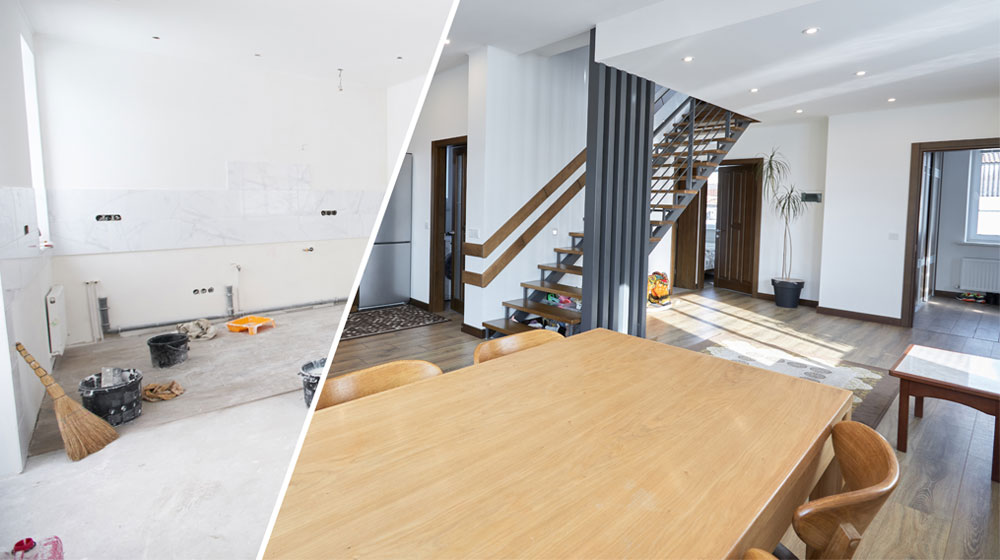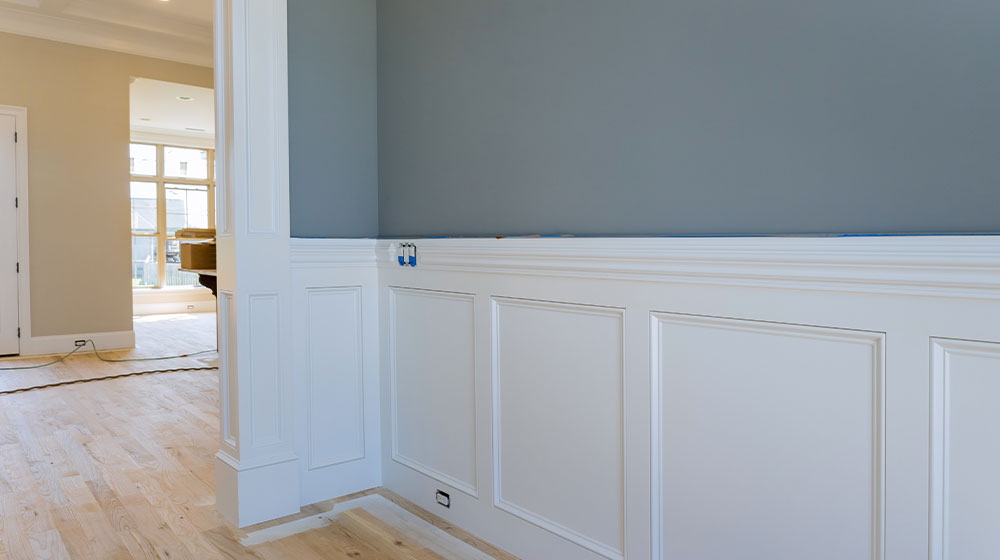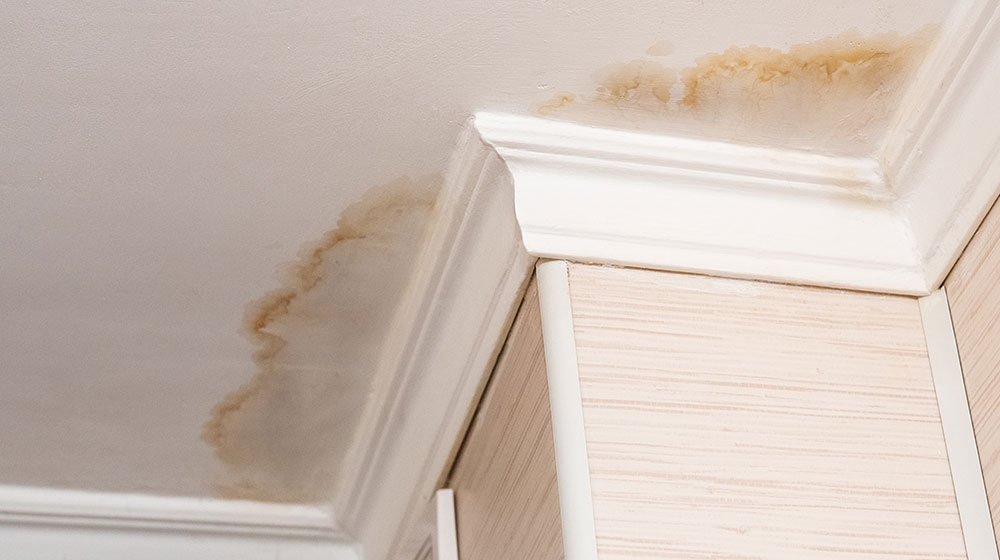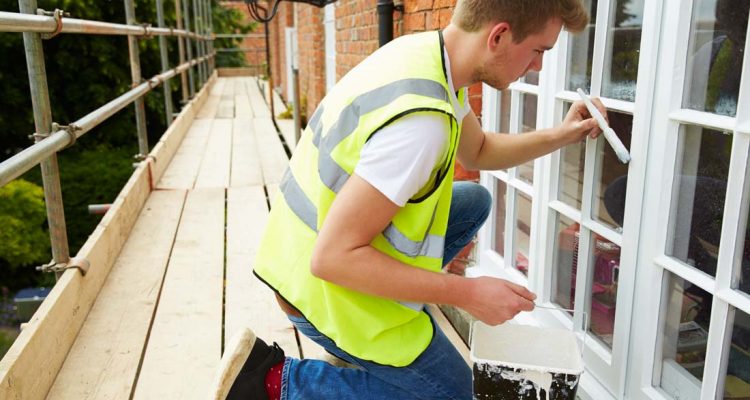
Home repairs aren’t ever fun, but water damage repair can be especially costly and devastating. In order to avoid the expense and long-lasting consequences, it’s critical for homeowners to take proactive steps to protect their homes. Thankfully, it doesn’t have to be complex. Simple maintenance – such as regularly checking water pipes or drainage systems – may prevent water damage in the first place. If a water emergency does occur though, it is important to act quickly, so research a good water damage repair company while you still have time. Taking these easy steps now may save you from an expensive nightmare down the road!
Check for Leaks
Regular water leak inspections are an important step in avoiding expensive water damage repair and costly water damage restoration costs. The last thing anyone wants to be faced with is a hefty bill from their insurance company after something as small as a tiny water leak results in property damage. Therefore, it is wise to check your roof and plumbing regularly for any water leaks and attend to them without hesitation. Not only prevent large-scale water damage repair jobs but also keep water bills low by making sure no water goes un-measured and unreported over time. Take proactive steps now to ensure that no nasty surprises lie ahead!
Address any Moisture or Condensation
If you notice any signs of moisture or condensation in your home, it’s important to address the issue quickly. Not only can this indicate a bigger problem with the current insulation, such as a water leak per square foot, but if left untreated, it can lead to mold growth which is dangerous for your health and may require costly water damage repair and potentially structural damage. The key takeaway here is that it’s essential to ensure that your home is properly insulated, free from any condensation, and regularly inspected to identify any problems early on. By doing so, you can save yourself hassle, expense, and potential health risks down the line.
Don’t Overlook Rainwater
In some cases, water damage can be caused by excessive rainwater that is not able to escape a property. As a result, it’s important to check the gutters, downpipes, and overall drainage system of your home to ensure that any excess rainwater can drain away from the property properly and not cause any water damage. If the drainage system is inadequate, then the problem should be addressed as soon as possible, to ensure that excessive rainwater isn’t causing any damage to the property.
Look Out for Cracks
It’s also important to look out for any cracks or structurally weak areas that may be causing problems with water damage. These should be addressed as soon as possible, to ensure that no further damage can occur in the future. Any areas that are damaged or weak should be repaired immediately, and any potential leaking should be identified and fixed to avoid any further water damage in the future.
Inspect Your Roof
The roof of your home plays an important part in keeping the property safe from water damage, so it’s important to inspect it regularly for any potential problems that could be causing an issue. Inspecting the roof can help to identify any broken tiles, missing flashings, gaps in the felt, and any other potential issues that could be leading to water damage. If anything is identified, you should address this as soon as possible, before any serious damage occurs.
Clean Your Gutters
Keeping your gutters clean and free from debris is paramount for preventing water damage to your property, and ensuring rainwater can drain away properly. Failing to regularly do so can be costly; water damage repair costs can add up quickly, not to mention the potential for water-related structural damage needing restoration by a water damage restoration professional. It’s really in your best interest to clear out your gutters regularly, so any water damage issues are avoided altogether. Spending the time now on cleaning them could save you a lot of money in the future.
Insulate Your Pipes
Insulating your water pipes is essential for avoiding water damage, both in terms of preventing water freezing and bursting in normal weather conditions, and reducing the risk of water damage occurring in colder climates. Properly insulated water pipes maintain an even temperature throughout, so that water can travel through them safely without freezing or forming standing water that can cause costly damage to any structure or building. You should call a professional water damage restoration company to assess the condition of your water pipes and offer advice on how to ensure they are properly insulated – this way you can reduce the chances of moisture seeping into walls and causing extensive water damage.
Watch for Plumbing Leaks
It’s also important to regularly monitor for any plumbing leaks that could be occurring in your home. This can help to nip any potential problems in the bud and prevent any further water damage from occurring. Any plumbing leaks should be addressed as soon as possible, as even the smallest of leaks can quickly lead to a much larger repair job.
Avoid DIY Repairs
It can be tempting to attempt any DIY repairs yourself if necessary, but you should avoid this if you can. If you are unsure of how to fix any potential problems then you should speak to a professional plumber or water damage repair team to ensure that any repairs are identified and addressed correctly. Attempting a DIY repair can often lead to further damage and increased cost, and can be more difficult to fix than if you had contacted a professional in the first place.
Check Your Washing Machine
It’s also important to check your washing machine regularly, as any issues with the machine can quickly lead to water damage. This is particularly true if it’s an old washing machine, as the seals may have started to degrade over time and could be causing water to leak out when the machine is used. As a result, you should check the hoses regularly and replace them if necessary.
Consider a Water Damage Detection System
A water damage detection system is a great way to help avoid water damage repair. These systems are typically made up of a range of sensors that are placed throughout your home to detect any potential water leaks or moisture levels that could lead to water damage. This is a great way to stay ahead of any potential issues and ensure that you are notified of any potential water damage as soon as possible, giving you the chance to address the issue and prevent it from becoming a bigger problem.
Be Aware Of Your Appliances
Be aware of any appliances in your home that use water, and make sure that you inspect them regularly to make sure that they are in good condition. This includes any dishwashers, washing machines, fridges, and kettles, as these can all be potential sources of water leaks. If any problems are found then you should address these immediately, as a small water leak can quickly lead to a larger problem and cause serious water damage to your home.
Monitor Your Home For Changes
Finally, it’s important to keep an eagle eye on your home, looking out for any changes or signs of problems that could lead to further water damage. This includes looking out for any changes in the moisture levels of the property, any signs of mold growth, or any other potential water damage. If any changes are noticed then you should investigate further, as this could be a sign of a potential water leak or another issue that needs to be addressed.
Water damage repair can be an expensive and disruptive process and one that is often easily avoidable with just a few simple steps. As a homeowner, it’s essential to take the steps necessary to try and avoid the need for water damage repair, as this can help you to save time, money, and stress in the long run. By following the 13 simple steps outlined in this article, you can start to identify any potential water damage issues and work to prevent them from becoming more serious issues in the future.


